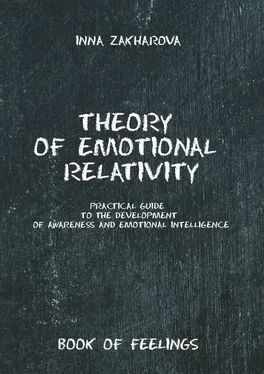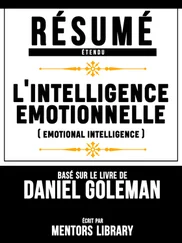• Buy love. To feel love and connection with others, a person works hard on himself to build a smart shape that everyone will like. This strategy of getting love is built on high activity, productivity and the pursuit of status. The standard is the generally accepted current understanding of success, and all activities are aimed at achieving the status of “smart”. The guarantor of attracting love is all sorts of success attributes – brands, positions, achievements. Here the highest order values are fashion, style, image, attention, admiration.
• Avoid pain. This is a clever variant. In order to feel love and connection with others, I doom myself to loneliness. “I need love and acceptance so much that I can imagine in advance how much I will suffer when I lose love. Not to experience this suffering, I abandon relationships and love in advance”. In such cases, a person can be a recluse, a hermit, however, creativity will fill his life, although “for the desk drawer.” Here values of the highest order will be creativity, self-expression, individuality, feelings, beauty.
Respect. Strategies and Values
What values are the most significant, when we speak about respect and self-respect?
Values from the need for respect:
• Power.Self-esteem is directly related to self-respect. “I could. I managed, although it was hard, but others could not do it at all.” If we can say this, it allows us to be proud of ourselves, to respect ourselves and those others whom we can think about in this way.
• Autonomy. Autonomy is a criterion of strength, because if you can cope without outside help, you are strong enough. Autonomy and independence also allow you to feel clearly your boundaries, this is necessary for self-respect.
• Power.Power is also a criterion of strength. “I am so strong that I can influence the situation of other people. Everything happens according to my will.”
• Struggle.Despite the fact that we all try to avoid it, the struggle is a circumstance in which we can show our strength and, therefore, satisfy the need for respect. Struggle is a proof that the strong can fight and defeat circumstances and other people.
• Achievements. Achievements are victories that we record on our own account. “I am strong, my achievements are a real demonstration.”
• Professionalism.Professionalism is a tool for achievement. “I am a professional in my field. Significantly, my opinion is authoritative, they will listen to it and respect me.”
• Responsibility.Responsibility determines the degree of influence. “If the influence on the situation is in my hands, then I’m the main one. I will decide what, how and when to do, while I am ready to be responsible for any consequences.”
Strategies of getting values:
• Seize the power.To feel his worth and respect for himself, a person directs all his resources to ensure that one of his species says that he is a big person and that he needs to be obeyed. A loud, assertive voice, a heavy look and wisecracks help him to get respect. “I’m the boss, and just try to argue with that.” Here the value of the highest order will be power, authority and struggle. In relationships, other people feel aggression, often perceive a person as a tyrant.
• Depreciate a need.To feel his worth and respect for himself, a person depreciates his importance as much as possible himself: “This is garbage, I do not need any respect. Well, they take my things, well, OK. They didn’t listen to my opinion, well, they just didn’t hear it. This is unimportant for me. My opinion is not important.” Your opinion is depreciated on your own in order not to worry painfully when someone else does it. Such a person often chooses a lifestyle in which communication with people is minimal, life is organized away from others so that no one can insult, offend or devalue. This is a strategy of escaping from oneself, from one’s needs. Here, the highest order values are autonomy, non-interference.
• Earn respect. To feel his worth and respect for himself, a person strives to be a perfectionist, to be a super-professional in some narrow field. So that no one would even have the thought that such a person cannot be respected. “I will be irreproachable and people will be forced to respect me”. By definition, it is impossible not to respect him, because he only does what works. He works more than others, everything is fine, if you turn to such a person, he will always do everything clearly and on time. Everyone respects such a pronounced professionalism, even those who do not like him: “I do not like this person, I will not communicate with him. But he is worth respecting him.” For a person with such a strategy of behavior, the highest values are professionalism, principles, rules, discipline.
Anti-values – this is exactly the opposite of values. If support is a value to me, then pressure will be an anti-value. Attention is a value, ignoring is an anti-value, strength – weakness.
Sometimes we find ourselves in conditions that create even more urgency in need. It is as if you want to drink and get into a dessert, where there is not even a shadow nearby, then you want to drink even more.
It also happens with psychological needs. For example, you need some attention from a person or a group of people, and instead you get complete disregard. Or you want praise, approval in order to feel your value, for this you do some work, and in return you get criticism. It turns out that in addition to the fact that you did not satisfy your need for love, you also got a greater deficit in this need.
For example, the anti-value of security is “uselessness” and “waste of time.” We are talking about situations where you, moreover, do not get the resource you were counting on, but also lose what you had. A common case: you go to an event to get a resource, for example, a weighty opinion or some new information, and when you come, you do not receive an authoritative opinion or useful information, but you spend money and your time (money and time are values from the need for security). As a result, you got “uselessness” and “a waste of time and money”, you feel no more relaxed as planned, but more anxious – the need for security has become even more urgent because you have just lost your resources.
“Weakness”, “inability to influence,” “helplessness” are examples of the anti-values of the need for respect. Usually we meet with them when life circumstances are irreversible or the opponent is much stronger than us.
What do we feel at the thought of a possible encounter with anti-values? Disgust. We do not want to meet our anti-values, we want to maximize the distance from them. For example, if you have a leading need for security and you have to communicate with a person whose level of knowledge is much lower than yours, most likely you will experience arrogance, which includes disgust. When information is very valuable to you (informed means warned), and a person cannot be its source, you feel a security risk because you are wasting time, instead of this conversation you could be at home and read a book, such time would be of great benefit for you.
Some things can be a real value for one person
and an anti-value for another one!
This is called a values conflict. It can be inside one person or in the relationship of people. In such cases, we say: “I don’t understand how you can live like that!”
Читать дальше












